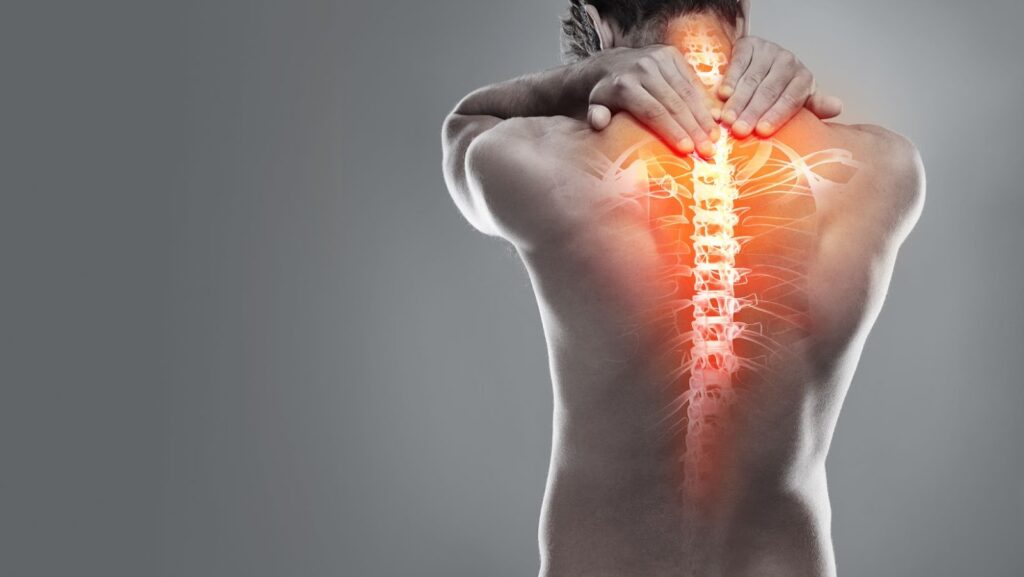Chronic back pain affects millions of people worldwide and can have a major impact on daily activities, work, and overall quality of life. While it may seem overwhelming, taking control of your recovery is possible with the right strategies and support. This article explores various ways to manage chronic back pain, from lifestyle changes to professional treatment options like orthopedic care and physiotherapy. Let’s dive into some effective solutions to help you reclaim your mobility and live pain-free.
Understanding Chronic Back Pain
Chronic back pain is defined as pain that lasts for more than three months and may be caused by a variety of factors. Unlike acute pain, which occurs suddenly and typically resolves with rest or treatment, chronic pain persists long after an injury or event. Common causes include muscle strains, herniated discs, arthritis, and degenerative conditions like spinal stenosis. Poor posture, obesity, and stress can also contribute to ongoing pain.
Recognizing the underlying cause of your chronic back pain is key to finding an effective treatment. Whether it’s muscle-related, nerve-related, or structural, a proper diagnosis can help guide your recovery plan.
The Role of Lifestyle Changes
One of the most important aspects of managing chronic back pain is adopting a healthy lifestyle. Here are some ways lifestyle changes can make a significant difference:
- Exercise and Stretching: Regular physical activity strengthens the muscles surrounding the spine and improves flexibility. Low-impact exercises like swimming, walking, or yoga can help reduce strain on the back while also increasing overall fitness levels.
- Weight Management: Maintaining a healthy weight is crucial for back health. Extra weight puts added pressure on the spine and can exacerbate pain. By adopting a balanced diet and regular exercise regimen, you can alleviate strain on the lower back and reduce inflammation.
- Dietary Support: Some foods are known to have anti-inflammatory properties and can help combat chronic pain. Omega-3 fatty acids, found in fish like salmon and sardines, can help reduce inflammation in the joints and muscles. Additionally, a diet rich in fruits, vegetables, and whole grains provides essential nutrients for tissue repair.
Orthopedic Support for Chronic Back Pain
Treatments may include spinal injections to relieve inflammation or even surgery if conservative methods fail. Surgical options, such as a discectomy or spinal fusion, are typically considered when other treatments don’t offer relief. Orthopedic surgeons are equipped to handle a range of spine conditions and can help patients recover and regain mobility.
If you’re struggling with persistent back pain, visit Modern Orthopaedics for Wayne orthopedic surgeons. They specialize in diagnosing and treating a variety of musculoskeletal conditions and can provide the care you need to begin your recovery journey.
Physiotherapy as a Recovery Tool
Physiotherapy plays a critical role in managing and recovering from chronic back pain. A skilled physiotherapist can design a personalized rehabilitation program to address your pain, restore mobility, and prevent future injuries. Treatment options include:
- Manual Therapy: This hands-on approach involves techniques like joint mobilization and manipulation to alleviate pain and improve range of motion. Manual therapy can help ease muscle tension and stiffness in the back.
- Targeted Exercises: Physiotherapists guide you through exercises that strengthen the muscles supporting your spine. These exercises are designed to increase stability, prevent further injury, and reduce strain on the back.
- Posture Correction: Poor posture is a major contributor to chronic back pain. A physiotherapist can help you improve your posture, both when sitting and standing, which can reduce the strain on your spine.
Working with a physiotherapist is essential to developing a recovery plan that is tailored to your unique needs. For those seeking professional physiotherapy services, contact Fit 4 Life, where experienced specialists can guide you through an effective rehabilitation process that targets your specific back pain issues.
At-Home Management Techniques
In addition to professional treatment, there are several at-home techniques that can support your recovery from chronic back pain. These strategies can help you manage pain on a daily basis and create a comfortable environment for healing:
- Ergonomic Improvements: Consider adjusting your workstation to ensure it is supportive of your back. Use an ergonomic chair with lumbar support and make sure your computer screen is at eye level to prevent slouching.
- Heat and Cold Therapy: Alternating between hot and cold packs can provide significant relief. Cold packs help reduce inflammation, while heat can relax tight muscles and improve blood flow to the affected area.
- Stress Reduction Techniques: Stress can exacerbate chronic back pain, as it leads to muscle tension and inflammation. Incorporating stress management techniques such as mindfulness meditation, deep breathing exercises, or relaxation practices can help reduce pain.
Seeking Professional Help: When and Why
It’s also essential to seek medical attention if your pain is interfering with your daily life or preventing you from performing basic tasks. Professional care is key to managing long-term pain and ensuring that you don’t suffer permanent damage to your spine.
Conclusion
Chronic back pain doesn’t have to control your life. With the right approach, including lifestyle changes, orthopedic support, physiotherapy, and at-home management techniques, you can regain control of your health and well-being. Whether you’re looking to prevent future injury or seeking professional intervention, there are numerous treatment options available to help you on your recovery journey. Don’t let back pain hold you back—take action today and start living pain-free.

